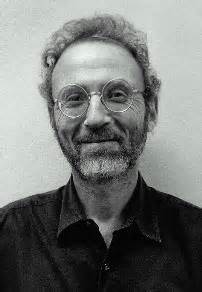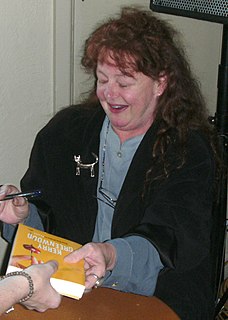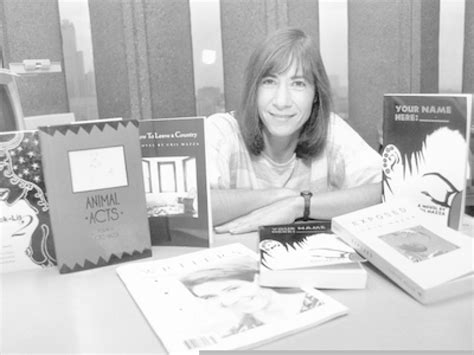A Quote by Dan Simmons
The best advice that an accomplished writer could give a beginning writer is probably, "Find your slide and then grease it." Almost every writer that wants a rewarding career, in terms of money and status and number of readers, finally finds a certain genre or certain style that he or she sticks with until reaching a critical mass of readership. And I've violated this from the get-go.
Quote Topics
Related Quotes
I think challenges are what any decent writer would be all about. If you actually do find your slide and grease it, shame on you. Me, I get bored very easily. As a writer I get bored even faster than I do in real life. I mean, I like fast cars; I've driven a lot of racecars. You need some stimulation. If I find something that seems too difficult to do, too difficult to research, or beyond your writing abilities, it's a perfect invitation to try it.
One of the most useful parts of my education as a writer was the practice of reading a writer straight through - every book the writer published, in chronological order, to see how the writer changed over time, and to see how the writer's idea of his or her project changed over time, and to see all the writer tried and accomplished or failed to accomplish.
Let the writer take up surgery or bricklaying if he is interested in technique. There is no mechanical way to get the writing done, no shortcut. The young writer would be a fool to follow a theory. Teach yourself by your own mistakes; people learn only by error. The good artist believes that nobody is good enough to give him advice. He has supreme vanity. No matter how much he admires the old writer, he wants to beat him.
Oh, I love labels, as long as they are numerous. I'm an American writer. I'm a Nigerian writer. I'm a Nigerian American writer. I'm an African writer. I'm a Yoruba writer. I'm an African American writer. I'm a writer who's been strongly influenced by European precedents. I'm a writer who feels very close to literary practice in India - which I go to quite often - and to writers over there.
When you find a writer who really is saying something to you, read everything that writer has written and you will get more education and depth of understanding out of that than reading a scrap here and a scrap there and elsewhere. Then go to people who influenced that writer, or those who were related to him, and your world builds together in an organic way that is really marvelous.
I used to be a writer with superstitions worthy of a professional baseball player: I needed a certain desk chair and a certain armchair and a certain desk arrangement, and I could only get really useful work done between 8 P.M. and 3 A.M. Then I started to move, and I couldn't bring my chairs with me.
I'm looking for a writer who doesn't know where the sentence is leading her; a writer who starts with her obsessions and whose heart is bursting with love, a writer sly enough to give the slip to her secret police, the ones who know her so well, the ones with the power to accuse and condemn in the blink of an eye. It's all right that she doesn't know what she's thinking until she writes it, as if the words already exist somewhere and draw her to them. She may not know how she got there, but she knows when she's arrived.
The ear is the only true writer and the only true reader. I know people who read without hearing the sentence sounds and they were the fastest readers. Eye readers we call them. They get the meaning by glances. But they are bad readers because they miss the best part of what a good writer puts into his work.
The consciousness-expanding drugs - the hallucinogens, such as cannabis, mescaline, LSD, Psylocybin - I think are useful to a writer up to a certain point. That is, they open psychic areas that would not otherwise be available to the writer. But I feel that once these areas have been opened and the writer has reached them, he is able to get back there in the future without the drug.
The writer is a spiritual anarchist, as in the depth of his soul every man is. He is discontented with everything and everybody. The writer is everybody's best friend and only true enemy-the good and great enemy. He neither walks with the multitude nor cheers with them. The writer who is a writer is a rebel who never stops

































